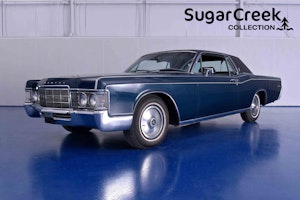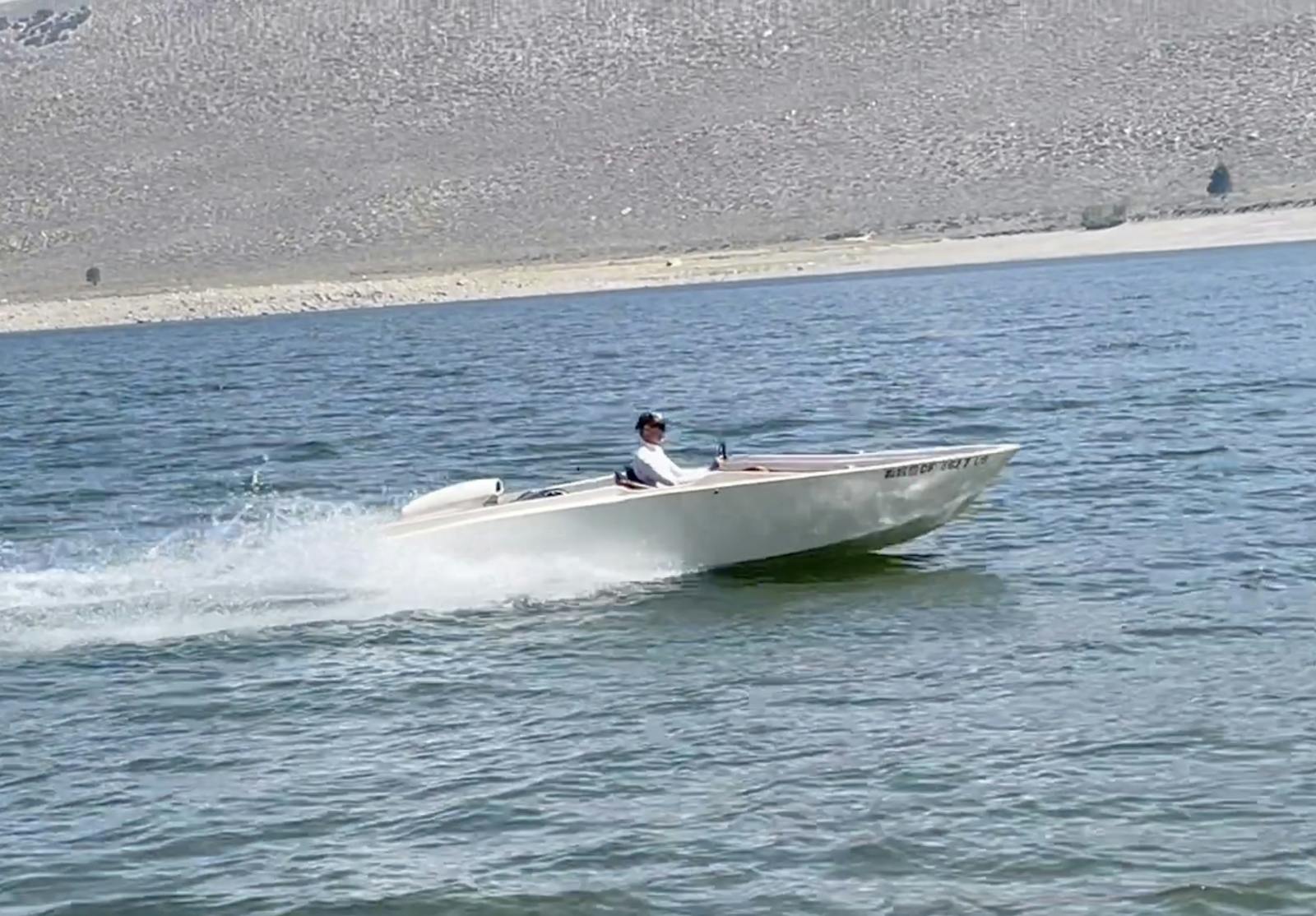Media | Articles
Trailering your boat? Travel tips for trips long and short
There’s no better example of the spirit embodied by Packard Motor Car Company’s classic advertising tagline “Ask the man who owns one!” than what I experience every time I tow a wooden boat somewhere.
“How old is it? How fast does it go? What’s the engine? What does it weigh?” are common questions I’m asked anytime I slow down enough to hear them. That’s right, people shout inquiries through open car windows. The parade of “thumbs up” signs never ends. And all of that interest can extend a trip too; it takes as much as 30 minutes to fill up the fuel tank while answering all the questions. But, hey, we’re spreading the word.
I had a lovely interaction recently with a member of the Ontario Provincial Police while returning from Canada to the U.S. with a classic Ditchburn boat in tow. In the course of writing me a speeding ticket, and relieving me of my radar detector (illegal in Ontario—who knew?), she and I had a wide-ranging conversation about boats, as well as moose, deer and bears, opioid addiction, and the impending legalization of marijuana in Canada. Having successfully cleared that hurdle, I pulled into the next Esso station, where I was met by a member of the Hells Angels of Ontario, who said he was thinking of stopping on the highway while I was getting ticketed, just to see the boat. He declared it “pure art, man.”
I have to smile about the whole trip while reminding myself that we never know how we’ll effect the future of our hobby, just by being nice to everyone along the way.
A great way to make sure it’s easy to smile on a road trip is to make sure your trailer is up to it. As we enter the travel and boat show season in the Midwest, trailer inspection and maintenance should be on everyone’s priority list. Hook up your trailer to the tow vehicle, and check all the lights. If any of them don’t work, check the fuses in the tow vehicle first. Most modern trucks have separate circuits for trailer lights, so you can blow a fuse and the vehicle lights still work. If you replace a fuse and the lights still don’t work, check the same fuse first, then begin troubleshooting the trailer light bulbs, ground connection, and finally the trailer wiring.
Marketplace
Buy and sell classics with confidence
Next, check the trailer bearings. Pop the bearing covers off, and physically inspect the bearings (don’t just shoot more grease in your Bearing Buddies). Boat trailers, particularly those used only to launch the boat in the spring and retrieve it in the fall, live in a difficult environment. They can take on moisture whenever they’re backed into the water, and if they aren’t driven far enough to generate the heat needed to dissipate the moisture, the bearings will rust. That may not matter much when you retrieve the boat in the fall, but if you attempt a longer trip, you’re asking for trouble.
Finally, check your tires. Make sure the pressure is correct and consistent. Also check the date of manufacture, as they should be replaced every 8-10 years. Tires deteriorate over time, even if they still look brand new.
If you’re taking a longer trip, make sure to bring along a good spare tire for your trailer. There’s no better way to insure you won’t need it than to have it with you, and it makes it easier to keep smiling when you’re answering all the questions about your boat.










